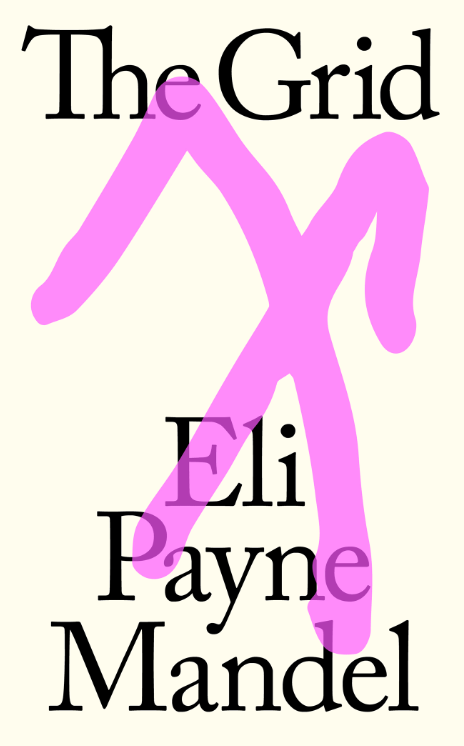in memory of Louise Glück
Everything in “GORKY SUBLIVM TIXET” is true. I think. Well, not the letters. Mine have never “been returned sewn shut like eyelids,” although perhaps occasionally I indulged the feeling. And maybe not the missed appointment either, which didn’t happen, not like that. But the Latin, everything I say about the Latin, that’s more or less correct, philologically. And the phrase itself, yes, I saw it, graffiti near or on an overpass, while I was traveling by train somewhere in the Veneto, Italy, late October, 2014. I was not going to see anyone and I didn’t have anything better to do. The pink and green bubbles, too. They were there.
Everything in this poem is true, or happened, or some things are, or would it be better to say they are real, remembered, factual, “the case”? I am troubled by the relationship between poetry and our world. Poems come to us from their world. They address us from behind a shimmering screen like aliens or hierophants. This is so, I think, even for poems that address lived experience (individual or communal) in a frank manner. If it weren’t, we could stick with personal essays.
Perhaps it is discourteous, but I would like to ask something of them, these difficult visitors, who request an audience while the boreal forest burns and smart munitions fall on babies. Can you show us the truth, can you help us change, I would like to ask. Can you teach us something wise about our state of emergency? If not, you only burden us with beauty. You have left diamonds in my spare bedroom, and I can neither keep them nor send them back without great expense.
As a poet and therefore complicit in the making of poems, I have tried to weasel out of this problem—the problem of poems in and against the world—by writing prose poems and poems about prose. Conventionally, the world is prosaic. It unfolds in ribbons of tweets and advertisements. Also: graffiti somewhere in the northern Italy. If my poems attended to and participate in this prose, perhaps they would tell me, or you, something about the crisis we call the present.
And so, in my poem, as on my train ride, the tag summons the ghost of Rome, the model for a certain kind of imperialism, and the language of empire says something, something about the sublime, which I try to decipher while preoccupied with my own errands and complicit in the spasms of conspicuous consumption and wanton violence that we could call the west.
I am less convinced now that the world occurs in prose or that poems can or should be asked to help us. I wrote “GORKY SUBLIVM TIXET” nearly ten years ago. This October, I realized there was another text distantly behind its making. Not prose this time, but poetry, Louise Glück’s “Summer Night,” with its unmade journeys and unstamped letters. “I don’t understand why anyone needs to see that stuff,” I remember her saying to me when I told her I was going to Padua, Venice, Ravenna. “Isn’t that what books are for?”
I see her now a year or two later, at the dining room table in the house she rented in North Berkeley, reading some draft of “GORKY.” She grinned. Louise’s grin was unsettling, like a demon’s. Yellowed teeth against the black of whatever she was wearing, which was always black. She had, perhaps, come back from the gym, and was wearing a bracelet of tiny skulls. “This is very funny,” she said. A low, slow, chuckle. I never had thought of this or any of my poems as funny. Wasn’t I a sober poet who wrote about serious matters? But this is not how being a poet works. Poems come from beyond, and they speak to us in otherness, which is reason enough to hear them out.
This may not live up to my comic potential, but I am reminded, as I should be more often, that the early history of poetry is partly the history of funerary inscriptions. In the Pyramid Texts of Old Kingdom Egypt, or the many funeral stelae from ancient Greece engraved with metrical texts, poetry arises out of the need to make a memorial for the dead. In the Greek funerary epigrams, the dead sometimes speak in the first person, hailing whatever person or god bothers to stop, read. Not graffiti on an overpass, exactly, but a reminder. Sēma (sign) or mnēma (memory) is what these inscriptions call themselves. In a bit of cracked and partly illegible marble from 5th-century bce Kos, Louise’s old friend Persephone speaks through the voice of an unmarried girl (Inscriptiones Graecae XII.4.3 1241):
leaving my father behin[d] [.]OM[..]PHIL[– – – –]
I, Empedokratē lie here bride of dea[dly Hades]
Miserably I suffered dear OISIPOTHA [– – – – –]
I pity my mother also in Hades’ ho[use]
Keep an eye, wanderer, on the poems you see along the road.




